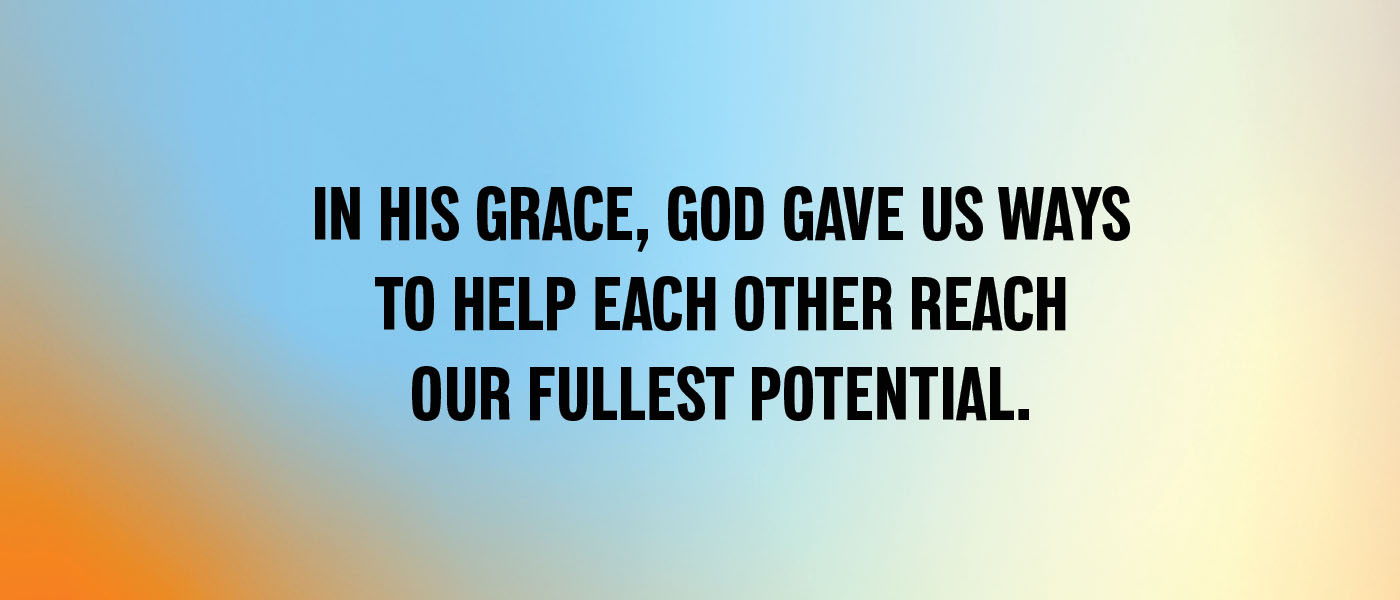Two Equals One: A Devotional for Couples (For Wives)預覽


A Blueprint for Growth
I am a peacemaker. Being a peacemaker is intrinsically part of my identity. No matter where— home or work—I assume the task of creating harmony and unity. It’s something God placed in me that has always been a part of who I am. It’s a gift that I’m uniquely able to bring into our marriage, and it makes us stronger. And let me tell you, the feeling of being able to help your spouse from a place of your intrinsic strength is incredible! Linking up as a unit and empowering one another is a rush.
Stuffing my emotions is a learned behavior—it’s not healthy, but it was ingrained in me as a child. My introduction to dealing with emotions became my instruction. It’s something I learned, something I was taught, whether consciously or subconsciously. And it’s something I am responsible to unlearn. We all have intrinsic and learned behaviors. They’re aspects of our identities that we are better able to navigate as we develop our emotional intelligence.
Some learned behaviors are simply tools that help us compensate for areas of weakness; others are harmful habits or patterns that we either were taught or intuited along the way in our development. We are responsible as adults for unlearning the latter.
Since you’ve been married, I’m sure you’ve been told that “you’ve changed.” I want to be clear here—that’s not necessarily a bad thing! In fact, growth requires change. The important part is knowing yourself well enough to make sure that the areas in which you change are the negative learned behaviors. Jimmy has helped me enormously in learning how to express my needs and feelings. It’s something he was uniquely equipped to do. Scripture tells us, “Each of you should use whatever gift you have received to serve others, as faithful stewards of God’s grace in its various forms” (1 Peter 4:10).
In his grace, God gave us ways to help each other reach our fullest potential. Jimmy’s gift and ability to confidently express his emotions and needs fits perfectly in the space where I struggle—it is strength where I am weak, but only when we work together. As a result of our applying this two-equals-one principle, I’ve become more vocal and assertive, which in turn leads me to a more emotionally healthy place where I can respond and relate to the needs of others. This is the skill of emotional health in practice—this is growing in love.
In 1 Corinthians, Paul talked about what it means to grow as a person, to grow in love. He said, “When I was a child, I spoke and thought and reasoned as a child. But when I grew up, I put away childish things” (1 Corinthians 13:11 NLT). I know that adulthood comes with a heap of responsibility. If I’m honest, sometimes I find myself feeling a twinge of envy for the freedom I see in little children! But the reality is that along with the depth of responsibility comes greater beauty; our experiences of love and what it really means to love become so much clearer and more meaningful.
There is nothing more worthwhile than love.
Nothing that could bring a greater return.
Nothing that will outlast.
So don’t be afraid of change.
Respond
- Why do you love your spouse?
- Describe ways God uniquely designed you and your spouse to spend life together.
Prayer
Lord, I am so grateful for the life and the spouse You have given me. I want all our days together to point to the goodness and love that You offer.
Was this plan helpful? We adapted this plan fromTwo Equals One: A Marriage Equation for Love, Laughter, and Longevityby Jimmy and Irene Rollins. Check it out for more.
經文
關於此計劃

These five daily readings are based on the book Two Equals One: A Marriage Equation for Love, Laughter, and Longevity by Jimmy Rollins and Irene Rollins. Wherever your marriage is currently, Jimmy and Irene want to help you get back to a place of love, laughter, and longevity. A place where two equals one.
More









